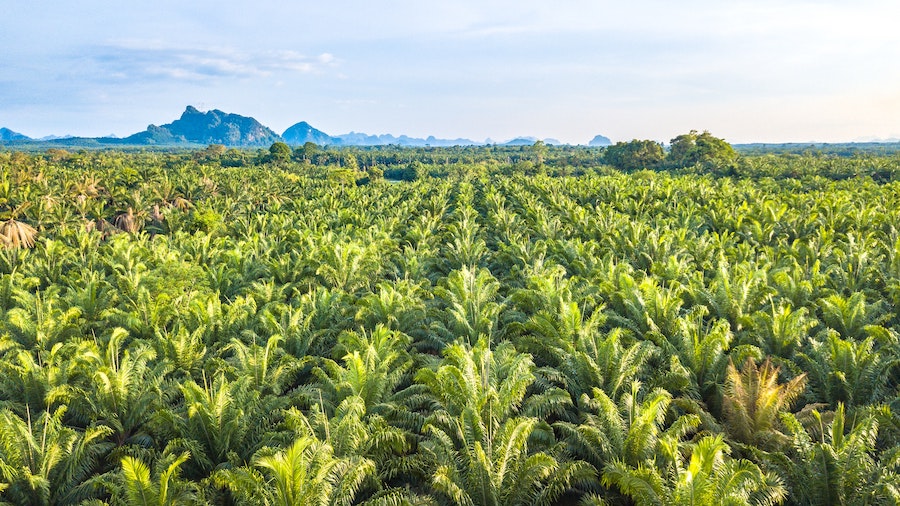Should I be worried about palm oil?
Even if you’re not entirely sure what palm oil is, chances are you’ve probably heard rumblings about its environmental impact, and you will have almost certainly consumed it – whether you were aware of it at the time or not.
But what is it, why is it so controversial, and should you be worried about it? Here’s what you need to know…
What is palm oil?
Palm oil is an edible vegetable oil derived from oil palm trees. These tropical plants are native to Africa, but are now widely industrially farmed, particularly in Indonesia and Malaysia (85% of the world’s palm oil supply actually comes from these two nations alone) while another 42 countries also produce it.
There are two types: crude palm oil, made from the fruit; and palm kernel oil, made from crushing the stone in the centre of the fruit.

This is what palm oil seeds look like
How is palm oil used?
Because it’s so versatile, palm oil turns up in almost everything. Around 50% of all consumer products contain it, be it ice cream or biscuits, packaged bread or pizza (it can help stop the dough sticking apparently). And it’s not just foodstuffs – shampoo, lipstick, even deodorant can all feature it on their ingredients list.
The problem is, palm oil can be a very useful ingredient – it’s neutral, so doesn’t change the colour, taste or smell of food, it helps make things spreadable and has preserving properties, plus it works wonders in fried food you want super crispy.
Companies promised to end deforestation by 2020, but they have officially failed. Let’s call them out and hold them to account: https://t.co/yeH3KdMzz8 pic.twitter.com/HBsCe6Z6Z1
— Greenpeace (@Greenpeace) January 26, 2020
How is palm oil a problem?
While it helps in making consumer products, and makes tonnes of money for corporations, palm oil is a major driver of environmental disaster.
Much of Indonesia’s invaluable rainforest habitats – home to endangered Sumatran tigers, Sumatran elephants and orangutans – have been bulldozed and cleared to make way for palm oil plantations. This deforestation not only affects native wildlife, flora and fauna, it also wipes out swathes of carbon sinks – fewer trees means more C02 in the atmosphere. Plus, Indonesia’s rainforests are largely peat-based (and peat stores a lot of carbon too) – palm oil companies drain the peat to prepare the land for planting palms. And clearing those trees in the first place also adds to greenhouse gas emissions.
Then there is the human cost. There are reports of locals and indigenous communities being forced off their land, and workers, including child labour, being used and exploited.
As you look at how to shop more responsibly and make a positive impact in 2020, watch this video to find out how demanding #sustainablepalmoil in your everyday products could support people + planet.
🌴🌳🐘👩🌾 pic.twitter.com/9hodozk2Ym
— Roundtable on Sustainable Palm Oil (@RSPOtweets) January 3, 2020
What can you do?
To start with, always check the label on whatever you’re buying. If a product does contain palm oil, look for the RSPO standard – a marker of sustainable palm oil (although this is still arguably problematic). If it’s missing, ask the brand why they aren’t using sustainable palm oil, and request they change their practices.
You can also support campaigns and charities – like Greenpeace – who are lobbying governments and companies to act responsibly, and take deforestation and the damage caused by unsustainable palm oil, seriously.
The Press Association
Latest posts by The Press Association (see all)
- The Osmonds star and ‘beloved husband and father’ Wayne Osmond dies aged 73 - January 2, 2025
- What screenings are available on the NHS to detect cancer early? - January 2, 2025
- Help your grandchildren make the most of Big Schools’ Birdwatch - January 1, 2025
- Veteran radio star Johnnie Walker dies aged 79 - December 31, 2024
- 5 fantastic winter walks for wildlife spotting - December 31, 2024




















